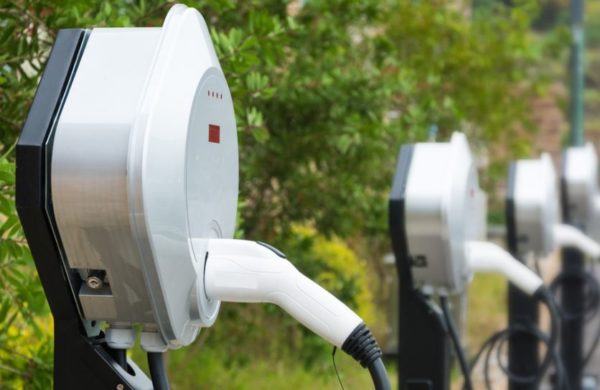

Needed in Every Parking Lot
The government proposes to amend building by-laws to make it mandatory to set up electric vehicle charging stations in residential and commercial buildings and parking lots.
The Town and Country Planning organisation under the Ministry of Housing and Urban Affairs is considering a draft proposition in building by-laws amendments that will make it mandatory for residential and commercial buildings along with parking lots, to have a specific electric vehicle charging station, reported ET.
The draft guidelines have been so designed to prepare the Indian transport sector for faster adoption of electric vehicles through a expansive and reliant charging infrastructure. According to the draft, all state governments will have to amend their building by-laws and master plan regulations per the new guidelines which include provision for a 24/7 charging infrastructure facility for EVs in residential buildings. It also includes setting up charging bays at 20 per cent capacity of all EVs, on-spot metering and payment services in commercial as well as residential buildings.
“The government is considering amendments to Urban and Regional Development Plans Formulation and Implementation Guidelines, 2015 and Model Building By-Laws, 2016 to accommodate promotion of electric vehicles in infrastructure planning and power distribution services norms,” said the official.
Sohinder Gill, director corporate affairs at Society of Manufacturers of Electric Vehicles, said, “The numbers indicate that citizens are accepting electric vehicles as an economical as well as a cleaner mode of transportation in comparison to conventional vehicles. However, the absence of adequate finance mechanism, price gap between an electric two-wheeler and petrol two-wheeler, awareness among citizens are challenges, which need immediate redressal,”.
However, according to numbers furnished by SMEV, electric 4 wheelers have failed to make a significant impact on the market. Lack of infrastructure, ambiguity over policy remain a major deterrent, holding the segment back. Case in point, the recent {[extension of the first phase]1} of the FAME scheme is the fourth time it has been extended by the centre since it’s inception in 2015, instead of launching the highly anticipated FAME – II with an financial layout of Rs 5,500 crores to boost all forms of electric mobility. The latest six month extension is expected to make the duration of the first phase span over twice the amount of time it was initially planned for by the centre.
The move to co-opt building owners and builders is an interesting one, as issues like adequate space, parking and many others will come up immediately. Also, this being at just a proposal stage, implementation on the round can safely be put off till at least 2019-20. Unless a well funded start-up takes aim at this ‘opportunity’.
1. The mandate for blending Compressed Biogas (CBG) with natural gas has come into effect…
Andhra Pradesh is striving towards greening its energy sector with quite some speed. In a…
With an objective to bolster India’s green energy goals, a Tripartite Agreement has been signed…
The Union MNRE Minister Pralhad Joshi launched the Green Hydrogen Certification Scheme of India (GHCI)…
India’s energy conglomerate Bharat Petroleum Corporation Limited (BPCL) has commissioned a 5MW green hydrogen plant…
In a historical development, the European Space Agency (ESA) has successfully launched its pioneering ‘Biomass’…